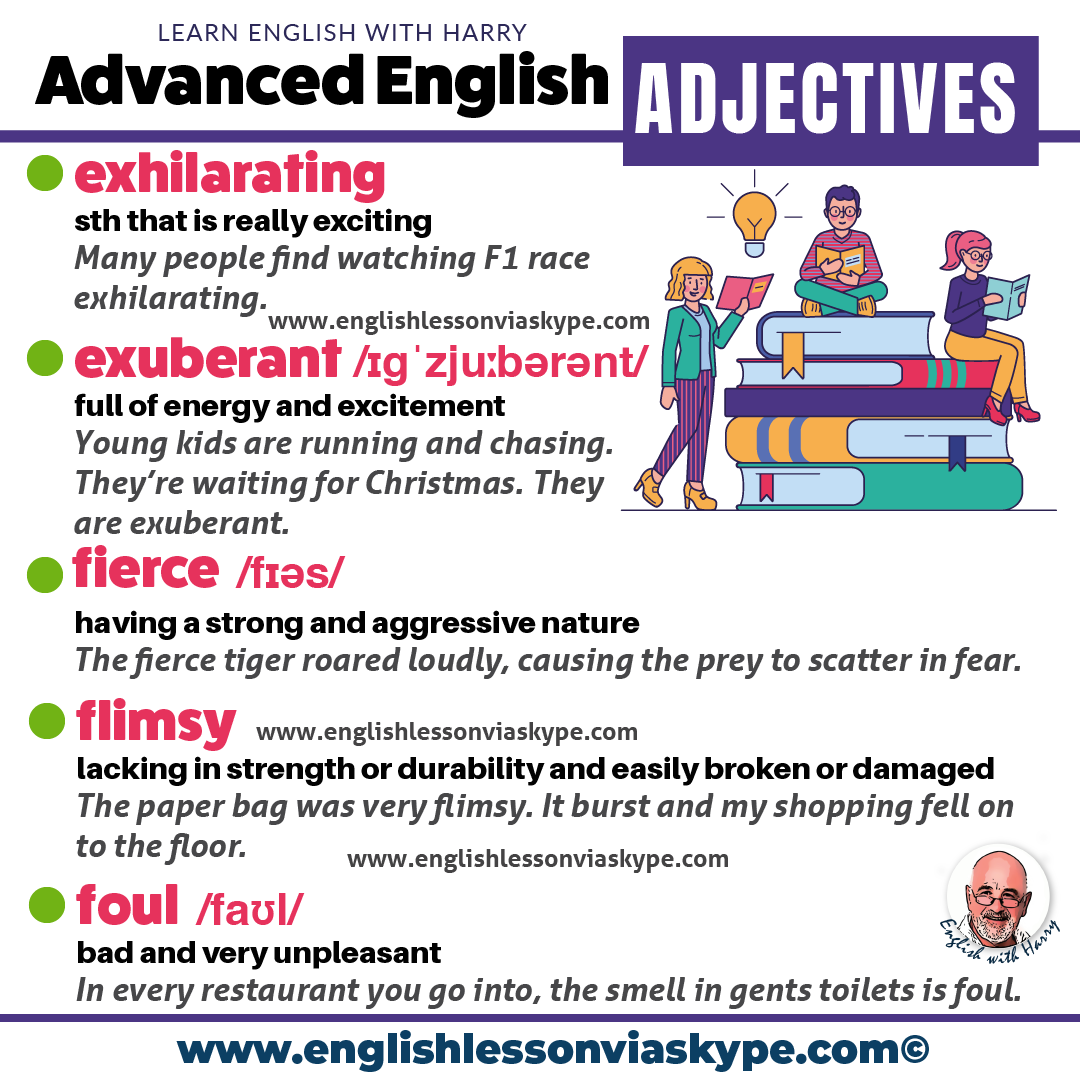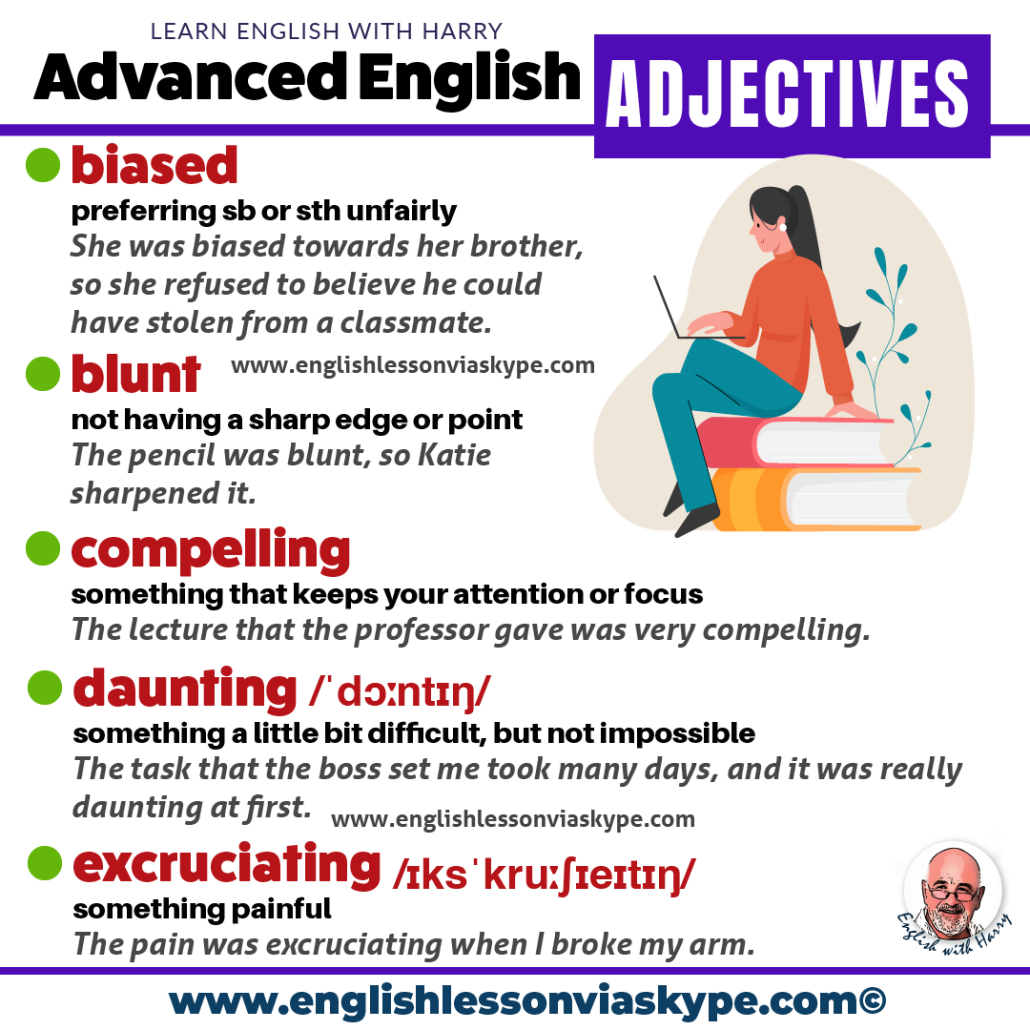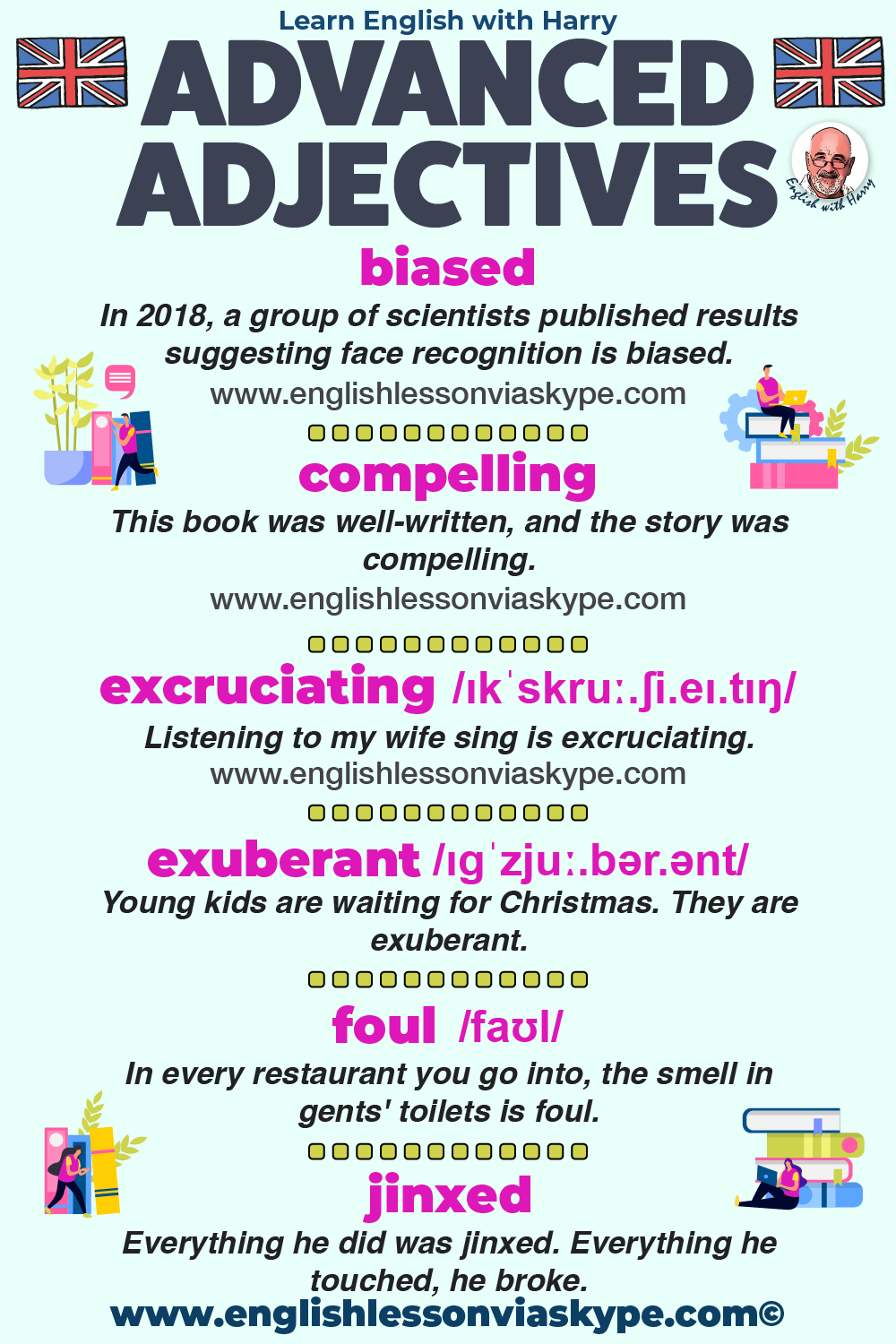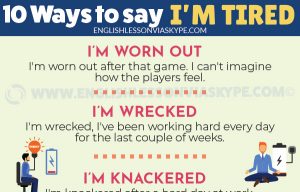I’ll be giving you 20 advanced English adjectives for fluency.
This English lesson is useful for students studying for IELTS, TOEFL, CAE, and other English proficiency exams, as well as those looking to improve their written and spoken English.
Listen to the podcast Speak Better English with Harry or watch it on YouTube at Learn English with Harry. englishclass101
List of English adjectives
20 Advanced English adjectives for fluency
Harry
Are you tired of using the same old adjectives in your English conversations? Do you want to take your speaking skills to the next level and sound more like a native speaker? Then this lesson is for you!
In this lesson, we’ll cover 20 advanced English adjectives at the C1 level that native speakers use in daily conversations.
By the end of this lesson, you’ll be able to incorporate these adjectives into your speaking and writing, and you’ll notice a significant improvement in your English language proficiency.
improve english on a budget
Online English Courses from €7.99
biased
Meaning: having a tendency to favour one side or viewpoint over others, which can result in an unfair or distorted perspective
Examples:
In 2018, a group of scientists published results suggesting face recognition is biased.
She was biased towards her brother, so she refused to believe he could have stolen from a classmate.
blunt
Meaning: not having a sharp edge or point
Examples:
The pencil was blunt, so Katie sharpened it.
It is difficult to slice meat with a blunt knife.
Meaning: very rigid, very straight to the point; can sound a little bit rude
Example:
The manager made a blunt remark about the company’s future.
compelling
Meaning: something that keeps your attention or focus
Examples:
This book was well-written, and the story was compelling.
The lecture that the professor gave was very compelling.
conceited
Meaning: having an excessively high opinion of yourself
Examples:
The student is very conceited. He thought no one should have got a better grade than him.
He was conceited and arrogant. He believed that he didn’t need these other people around him.
daunting
Meaning: sth a little bit difficult, but not impossible
Examples:
The task that the boss set me took many days, and it was really daunting at first.
Europe is facing a daunting economic challenge with rising inflation and a high cost of living.
20 Advanced English adjectives for fluency

defiant
Meaning: doesn’t want to appear to be weak or give up without a good fight
Examples:
They wanted him to resign because of his poor performance. But he was defiant; he wanted to struggle on.
The demonstrators were determined to overthrow the government. They were defiant.
excruciating
Meaning: something painful
Examples:
The pain was excruciating when I broke my arm.
Listening to my wife sing is excruciating.
exhilarating
Meaning: sth that is really exciting
Examples:
Many people find watching F1 race exhilarating.
Carcassonne board game is exhilarating. Have you tried it?
I climbed to the highest peak in the mountain, it was exhilarating.
exuberant
Meaning: full of energy and excitement
Examples:
Young kids are running and chasing. They’re waiting for Christmas. They are exuberant.
The sunshine makes you feel exuberant.
fierce
Meaning: having a strong and aggressive nature
Examples:
I was confronted by a large wild dog. It was fierce looking.
The wind was cold and sharp, it was fierce.
book your trial English Lesson
flimsy
Meaning: lacking in strength or durability and easily broken or damaged
Examples:
The paper bag was very flimsy. It burst and my shopping fell onto the floor.
The bedclothes were very flimsy, at nighttime, it was really chilly.
formidable
Meaning: very powerful or strong, deserving serious attention and respect
Examples:
He was a formidable opponent. Strong, tough and very fit.
It was a formidable challenge, but I finally finished that marathon crossword.
foul
Meaning: bad and very unpleasant
Examples:
In every restaurant you go into, the smell in gents’ toilets is foul.
There is something in there that smells bad. It’s a foul smell.
She was in a foul mood.
hostile
Meaning: unfriendly; showing opposition or dislike
Examples:
We didn’t want our company to be sold to our opposition. It was a hostile takeover.
A hostile crowd gathered outside of the Parliament Buildings for a protest against the rising cost of living.
ingenious
Meaning: clever, inventive, and resourceful in a creative or original way
Example:
Some of the apps you see on mobile phones these days are ingenious.
20 Advanced English adjectives for fluency

harsh
Meaning: unpleasantly rough, severe, or cruel
Examples:
He lives in Glasgow. Nine months of the year the weather is really harsh. Wet, cold, and windy.
I think you were a little bit harsh with the children.You didn’t need to be strong with them.
jinxed
Meaning: a person, place, or thing that is believed to be cursed or unlucky
Examples:
That dishwasher is completely jinxed. It works for 1 minute, then 2 minutes later it stops working.
Everything he did was jinxed. Everything he touched, he broke.
The government was jinxed from the beginning. There was another election after 3 months.
persuasive
Meaning: somebody who can get other people to do sth that he wants them to do
Examples:
He could be very persuasive and get people to do what he wanted them to do.
Her arguments were very persuasive.
tediuos
Meaning: somehting that is dull, monotonous, and repetitive, takes a long time
Examples:
Doing a jigsaw puzzle with 600 pieces in it is extremely tedious.
The guest speaker gave a tedious lecture with lots of numbers, data and uninteresting facts.
unscrupulous
Meaning: deceitful, dishonest, or unethical; lacking in moral principles
Examples:
An unscrupulous car dealer didn’t tell the purchaser that the car had been in two previous accidents.
An extremely unscrupulous sales manager sold the product without providing any guarantee.
speak better English with Harry podcast- episode 425
So there you have it, we’ve got 20 advanced English adjectives. Adjectives, as I said, are for describing nouns. I haven’t used any of the ordinary adjectives big, small, bad, little long, whatever.
And it would be great if you could try and practise some of them. Take them, take the examples that I’ve given, and try to make your own examples to practise them.
And don’t worry if you forget some of them, just try to remember three or four and then move on from that and drop them into your speech from time to time.
And if you need any more help, any other help you know where I am, just come back to me at englishlessonviaskype.com
Okay, so this is Harry, thanking you for listening. Thank you for watching, and giving you just a gentle reminder to join me again for the next lesson.

more information
For more information on English grammar rules, English collocations and English idioms, check out the links below:
English idioms related to relaxation and rest
You can always study English advanced level at Learning English with the BBC and British Council Learn English.






